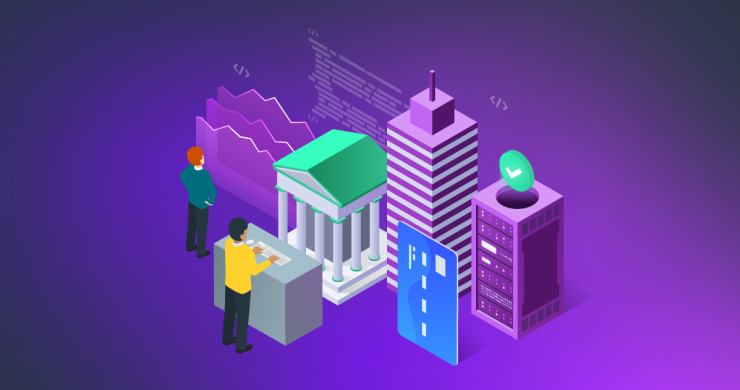How Artificial Intelligence Is Helping Us Enjoy Skylines

Johannesburg has a very characteristic skyline. With the tallest buildings in the continent, an amazing skyline dominates the horizon. Visible is the Carlton Center tower, the Marble Towers, Trust Bank Building and the Ponte City Apartments, and more.
Of course, its sunsets and sunrises are famous and very acclaimed. So, when the sight became rare to see, Tapiwa Chiwewe, an Artificial Intelligence researcher, became concerned.
Chiwewe was worried about the problems with gazing at the city’s skyline. This wasn’t because it was rainy and cloudy, but because it was polluted.
The researcher created a solution to pollution based on Machine Learning. This technology could predict the levels of polluting substances in the atmosphere. It helped administrations and citizens handle their movements in a more sustainable way.
Managing consumption habits is only one of the many benefits of Artificial Intelligence (AI). Artificial Intelligence is helping us protect the environment and become more energy efficient.
There are only three limitations to building successful AI systems — computing power, availability of data and imagination.” Tadas Jucikas, PhD at the University of Cambridge.
As long as we can count on data, imagination and computing power, Artificial Intelligence can impact many different parts of the energy efficiency sector. We can determine 3 main areas where its impact is noteworthy. These are the production of energy, energy grid balancing, and consumption habits.
As stated in the PwC report, “Machine Learning is being used to match energy generation and demand in real-time, releasing more fully the potential of “smart grids”, decreasing unpredictability and increasing efficiency, power balancing, use and storage of renewable energy.”
Artificial Intelligence In Energy Production
Renewable energy forecasting is an area where Artificial Intelligence has the biggest impact. Its applications in energy production are broad and notorious. It has helped some countries change production from fossil fuels to renewable energy.
China is a prime example. Despite high pollution levels, China is leading the change in renewable energy production methods. This is thanks to Artificial Intelligence.
Germany is also using Artificial Intelligence to predict energy production and consumption. Using a Machine Learning-based early warning system, they obtain “real-time data from wind turbines and solar panels around the country to predict the energy that will be generated over the next two days,” as explained by digital specialist Ashiss K. Dash.
Regarding energy production forecasting, Intelygenz A.I. has shown impressive figures in the wind sector. It has 95% accuracy in 1-hour predictions, 89% in 2-hour predictions, 78% in 4-hour predictions. Particularly, the 2-hour predictions have had the biggest impact on business profitability.
The impact of A.I. on the maintenance of machinery and equipment is also remarkable. It makes them much cheaper and affordable, which results in a positive impact on the price of energy. Intelygenz A.I. has demonstrated that it can predict single-component failure. This helps extend component life by anticipating breakdowns before they happen.
Given the intermittent nature of renewable energy, and the fact that this is the main barrier for finally moving forward with clean energies, the expectations on Artificial Intelligence are big and the results have already been proven.
Energy Grid Balancing
In the energy grid, Artificial Intelligence can enhance the predictability of demand and supply for renewables, improve energy storage and management, facilitate the integration and consistency of renewables and provide very competitive pricing.
For instance, “Stanford University is using Artificial Intelligence applications to help utilities better integrate their solar resources and make more informed planning decisions for enhancing grid reliability, resiliency and security”, according to the U.S. Department of Energy’s Office of Energy Efficiency and Renewable Energy.
But this strategy of implementing A.I. in the energy grid is not exclusive to the United States, and in Europe, it is also having great success, as stated by the consultancy firm PwC, among others. Norway is one of the European countries leading the move to artificial intelligence and renewable energy.
Consumption habits
Smart grids also provide a constant stream of data associated with how customers are consuming energy and at what time. For example, companies can set up a specialized plan for every customer. But the information related to how data is used also goes in the other direction, and customers now can make better decisions than before. In a broader context, having more accurate knowledge of our usage patterns (geographic and demographic characteristics) will help us develop more effective policies and laws (for instance, what Chiwawa, the engineer from South Africa, developed). Thanks to his A.I., public administrations and citizens can now handle shifting consumption in a less pollutant way, all by themselves.
Real-time A.I.-optimized energy efficiency can have an immediate and substantial impact on energy consumption. Google, for example, cut power use in its data centers by 40 percent using DeepMind’s reinforcement learning algorithms to optimize cooling.
Soon, we’ll know how much energy we consume, and how much renewable energy we produce. With this estimation, we’ll be able to decide whether we need additional energy (using fossil fuels, if necessary), saving time, money, and decreasing pollution.
This is just the beginning. Artificial Intelligence is already contributing to making skylines all over the world cleaner – and Tapiwa Chiwewe will be able to enjoy the cityscape of Johannesburg again.
Working with clients to create Intelligent Products as part of their custom software offering is one of the various applications of A.I. we specialise in. Discover more over on our IP page:

Get the latest roundup of the most important, interesting and stories from the past week. In your inbox every Saturday by 10am.
Related Articles you might like
The House Task Force road map that will transform businesses with responsible AI
On Tuesday, the Artificial Intelligence House Task Force released a substantial 253-page report outlining the principles for ethical and responsible […]
View Blog PostRecognized as a member of the Forbes Technology Council
We are proud to announce that Intelygenz President, Chris Brown is now a member of Forbes Technology Council. A vetted […]
View Blog PostKey Strategies for Financial Institutions to Unlock AI Value
In the financial services sector, artificial intelligence (AI) is often heralded as a transformative force capable of revolutionizing everything from […]
View Blog Post

